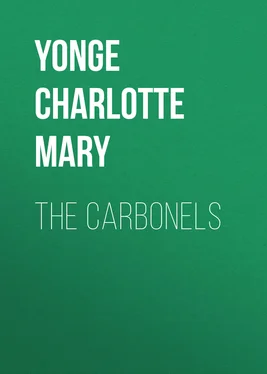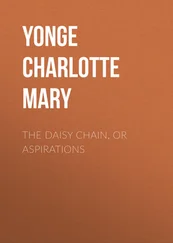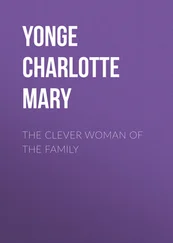Charlotte Yonge - The Carbonels
Здесь есть возможность читать онлайн «Charlotte Yonge - The Carbonels» — ознакомительный отрывок электронной книги совершенно бесплатно, а после прочтения отрывка купить полную версию. В некоторых случаях можно слушать аудио, скачать через торрент в формате fb2 и присутствует краткое содержание. Жанр: foreign_prose, literature_19, Европейская старинная литература, foreign_antique, на английском языке. Описание произведения, (предисловие) а так же отзывы посетителей доступны на портале библиотеки ЛибКат.
- Название:The Carbonels
- Автор:
- Жанр:
- Год:неизвестен
- ISBN:нет данных
- Рейтинг книги:4 / 5. Голосов: 1
-
Избранное:Добавить в избранное
- Отзывы:
-
Ваша оценка:
- 80
- 1
- 2
- 3
- 4
- 5
The Carbonels: краткое содержание, описание и аннотация
Предлагаем к чтению аннотацию, описание, краткое содержание или предисловие (зависит от того, что написал сам автор книги «The Carbonels»). Если вы не нашли необходимую информацию о книге — напишите в комментариях, мы постараемся отыскать её.
The Carbonels — читать онлайн ознакомительный отрывок
Ниже представлен текст книги, разбитый по страницам. Система сохранения места последней прочитанной страницы, позволяет с удобством читать онлайн бесплатно книгу «The Carbonels», без необходимости каждый раз заново искать на чём Вы остановились. Поставьте закладку, и сможете в любой момент перейти на страницу, на которой закончили чтение.
Интервал:
Закладка:
“You don’t look well. Have you been ill? You have a bad cough.”
“It ain’t nothing, ma’am, thank you. I can keep about well enough.”
“Do you take anything for it?”
“A little yarb tea at night sometimes, ma’am.”
“We will try and bring you some mixture for it,” said Mrs Carbonel. And then she spoke to Betsy Seddon, who for a wonder had no request on her tongue, and asked her who the other woman was, in the hedge with the baby.
“That’s Tirzah Todd, ma’am,” began Mrs Seddon, but Molly Hewlett thrust her aside, and went on, being always the most ready with words; “she is Reuben Todd’s wife, and I wouldn’t wish to say no harm of her, but she comes of a gipsy lot, and hasn’t never got into ways that us calls reverend, though I wouldn’t be saying no harm of a neighbour, ma’am.”
“No, you’d better not,” exclaimed a voice, for Tirzah was nearer or had better ears than Mrs Daniel Hewlett had suspected, “though I mayn’t go hypercriting about and making tales of my neighbours, as if you hadn’t got a man what ain’t to be called sober twice a week.”
“Hush! hush!” broke in Mrs Carbonel; “we don’t want to hear all this. I hope no one will tell us unkind things of our new neighbours, for we want to be friends with all of you, especially with that bright-eyed baby. How old is it?”
She made it smile by nodding to it, and Tirzah was mollified enough to say, “Four months, ma’am; but she have a tooth coming.”
“What’s her name?”
Tirzah showed her pretty white teeth in a smile. “Well, ma’am, my husband he doth want to call her Jane, arter his mother, ’cause ’tis a good short name, but I calls her Hoglah, arter my sister as died.”
“Then she hasn’t been christened?”
“No. You see we couldn’t agree, nor get gossips; and that there parson, he be always in such a mighty hurry, or I’d a had her half-baptized Hoglah, and then Reuben he couldn’t hinder it.”
Tirzah was getting quite confidential to Mrs Carbonel, and Dora meantime was talking to Molly Hewlett, but here it occurred to the former that they must not waste the women’s time, and they wished them good-bye, Dora fearing, however, that there would be a quarrel between Tirzah and Molly.
“Oh dear! oh dear!” she sighed, “couldn’t you make peace between those two,” she said; “they will fight it out.”
“No, I think the fear of the farmer and the need of finishing their work will avert the storm for the present at least,” said Mary, “and I thought the more I said, the worse accusations I should hear.”
“But what people they are! I do begin to believe that attorney man, that they are a bad lot.”
“Don’t be disheartened, Dora, no one has tried yet, apparently, to do anything for them. We must try to see them in their own homes.”
“Beginning with Mrs Seddon. She was quiet and civil, and did not beg.”
“Neither did that thin little woman. I should like to give her a flannel petticoat. There is a look of want about her.”
“But I’m most taken with the wild woman, with the teeth and the eyes, and the merry smile. I am sure there is fun in her.”
“Little enough fun, poor things!” sighed Mrs Carbonel.
She was more used to poor people. She had more resolution, though less enthusiasm than her sister.
Chapter Four.
Nobody’s Business
“For the rector don’t live on his living like other Christian sort of folks.”
—T. Hood.The sisters found on coming home that a very handsome chestnut horse was being walked up and down before the front door, and their man-servant, William, informed them that it belonged to the clergyman.
As they advanced to the verandah, Captain Carbonel and his visitor came out to meet them, and Mr Ashley Selby was introduced. He looked more like a sportsman than a clergyman, except for his black coat; he had a happy, healthy, sunburnt face, top boots, and a riding-whip in his hand, and informed Mrs Carbonel that his father and mother would have the honour of calling on her in a day or two. They had an impression that he had come to reconnoitre and decide whether they were farmers or gentry.
“We have been trying to make acquaintance with some of your flock,” said Mary.
“The last thing I would advise you to do,” he answered; “there are not a worse lot anywhere. Desperate poachers! Not a head of game safe from them.”
“Perhaps they may be improved.”
He shrugged his shoulders. “See what my father has to say of them.”
“Is there much distress?”
“There ought not to be, for old Dr Fogram and my father send down a handsome sum for blankets and coals every Christmas, and Uphill takes care to get its share!” He laughed. “No sinecure distributing!”
“We have not been to see the school yet.”
“A decrepit old crone, poor old body! She will soon have to give in. She can’t even keep the children from pulling off her spectacles.”
“And Sunday School?”
“Well, my father doesn’t approve of cramming the poor children. I believe the Methodists have something of the kind at Downhill; but there is no one to attend to one here, and the place is quite free of dissent.”
“Cause and effect?” said Captain Carbonel, drily.
“Would you object if we tried to teach the poor children something?” asked Mrs Carbonel, cautiously.
“Oh no, not at all. All the good ladies are taking it up, I believe. Mrs Grantley, of Poppleby, is great at it, and I see no harm in it; but you’ll have to reckon with my father. He says there will soon be no ploughmen, and my mother says there will be no more cooks or housemaids. You’d better write to old Fogram, he’ll back you up.”
Mary had it on her lips to ask him about Widow Mole, but he had turned to Edmund to discuss the hunting and the shooting of the neighbourhood. They discovered, partly at this time, and partly from other visitors, that he was the younger son of the squire of Downhill, who had been made to take Holy Orders without any special fitness for it, because there was a living likely soon to be ready for him, and in the meantime he was living at home, an amiable, harmless young man, but bred up so as to have no idea of the duties of his vocation, and sharing freely in the sports of his family, acting as if he believed, like his father, that they were the most important obligations of man; and accepting the general household belief that only the Methodistical could wish for more religious practice.
Be it understood that all this happened in the earlier years of the century, and would be impossible under the revival of the Church that has since taken place. No one now can hold more than one piece of preferment at a time, so that parishes cannot be left unprovided. Nor could Ashley Selby be ordained without a preparation and examination which would have given him a true idea of what he undertook, or would have prevented his ordination. This, however, was at a time when the work of the church had grown very slack, and when a better spirit was beginning to revive. The father of Mary and Dora had been a zealous and earnest man, and both they and Edmund had really serious ideas of duty and of the means of carrying them out. In London they had heard sermons which had widened and deepened their views, but they had done no work, as the relation with whom they lived thought it impossible and improper for young ladies there. Thus they were exceedingly desirous of doing what they could to help the place where their lot was cast, and they set forth to reconnoitre. First, they found their way to the school, which stood on the border of the village green, a picturesque thatched cottage, with a honeysuckle and two tall poplars outside. But strange sounds guided them on their way, and the first thing they saw was a stout boy of four or five years old in petticoats bellowing loudly outside, and trying to climb the wicket gate which was firmly secured by a rusty chain. Mary tried to undo the gate, speaking meanwhile to the urchin, but he rushed away headlong back into the school, and they heard him howling, “They bees a-coming!”
Читать дальшеИнтервал:
Закладка:
Похожие книги на «The Carbonels»
Представляем Вашему вниманию похожие книги на «The Carbonels» списком для выбора. Мы отобрали схожую по названию и смыслу литературу в надежде предоставить читателям больше вариантов отыскать новые, интересные, ещё непрочитанные произведения.
Обсуждение, отзывы о книге «The Carbonels» и просто собственные мнения читателей. Оставьте ваши комментарии, напишите, что Вы думаете о произведении, его смысле или главных героях. Укажите что конкретно понравилось, а что нет, и почему Вы так считаете.












